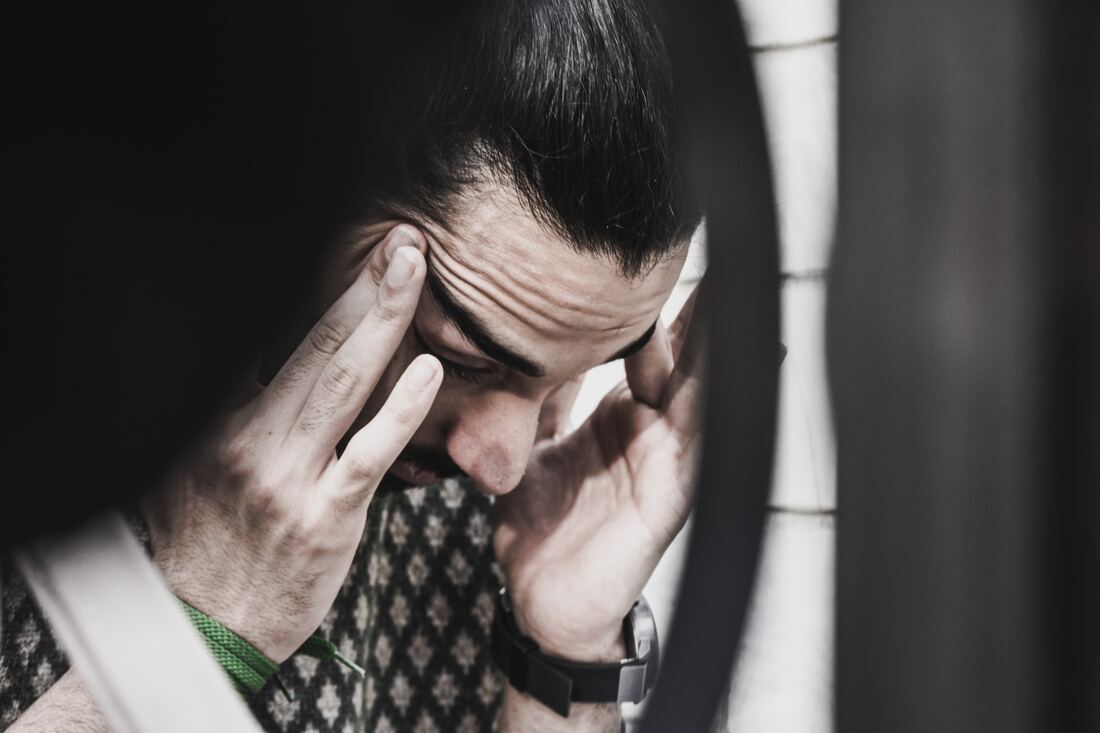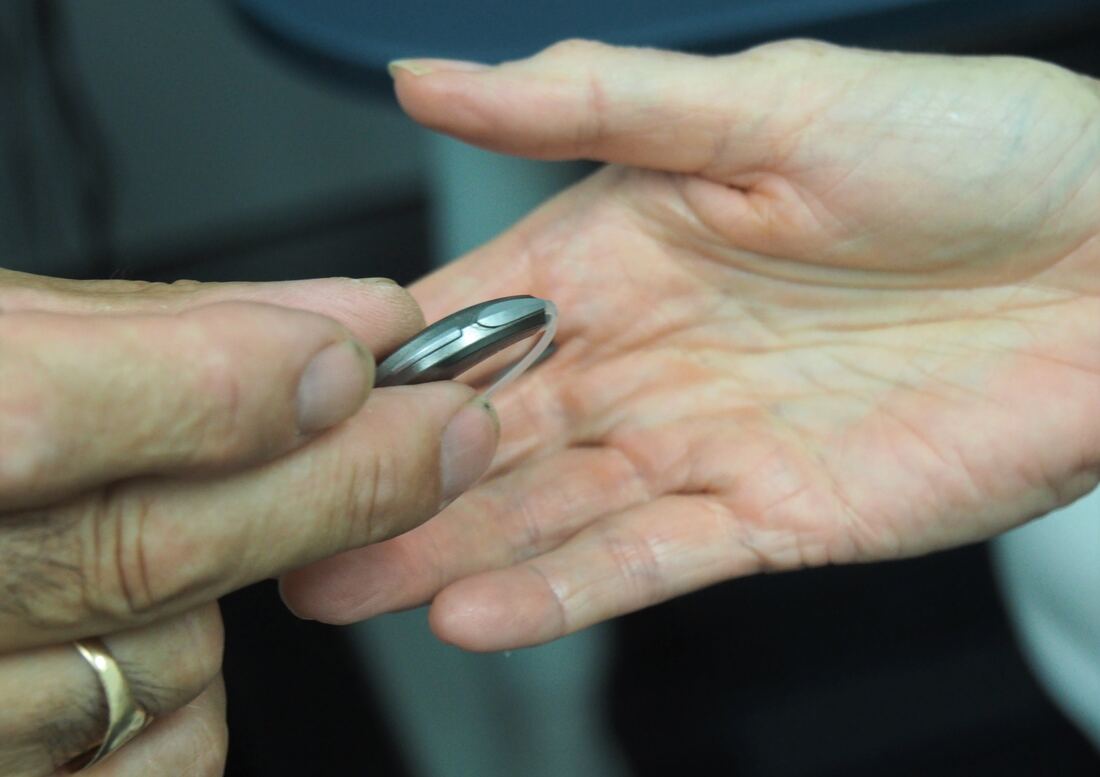|
Tinnitus impacts 10% to 20% of people in the U.S. It’s important to monitor your hearing if you notice a buzzing, chirping, clicking, or ringing noise and get a hearing test immediately. Prevention is the best course of action.
Causes of Tinnitus Tinnitus can be the result of an underlying health problem, but it usually manifests after being exposed to loud noises. Common causes of tinnitus include:
Tinnitus and hearing loss tend to occur simultaneously. This condition does not cause hearing loss, but hearing loss and tinnitus will feed off of each other, and make both symptoms worse. Risks of Tinnitus Tinnitus, like hearing loss, can affect anyone of any age. There are some risk factors that can increase the chances of developing symptoms of tinnitus. The following demographic are at high risk of tinnitus:
Preventative Measures for Tinnitus You can’t completely prevent the risks of tinnitus. There’s always a possibility of encountering loud noise no matter where you are (in the workplace or in your own home). Avoid risk factors when possible by:
Understand that there is no cure for tinnitus. There are however ways to manage symptoms which include sound therapy, meditation, or noise-masking features on hearing aids. If you are experiencing tinnitus and/or hearing loss, Pure Sound Hearing for a complimentary hearing test and consultation. Hearing loss is prevalent but not exclusive to individuals 65 and older. Anyone can have a gradual or sudden hearing loss, making communication challenging.
Patients with signs of hearing loss, whether detected by you or others with whom you consistently interact, should seek a hearing test.
If you responded “yes” to any of these and believe hearing aids are a solution, contact Pure Sound Hearing for a complimentary hearing test and consultation. The Types of Hearing Loss Multiple parts of the ear cooperate to create the ability to hear:
Three leading types of hearing loss alter different parts of the ear:
The Causes of Hearing Loss If there’s an obstruction or damage in the external, middle, or inner ear, you may experience hearing loss. Common causes of hearing loss include:
The Symptoms of Hearing Loss You may experience hearing loss in one ear (unilateral hearing loss) or both ears (bilateral hearing loss). Indications of hearing loss include:
You may exhibit other symptoms in addition to hearing loss, like tinnitus. If you or a loved one are experiencing hearing loss or problems with your hearing, please contact Pure Sound Hearing for a complimentary hearing test and consultation. As we have mentioned in this blog, hearing aids are an investment. Daily cleanings and proper maintenance will help your hearing aids work at their optimal level. Think about your eyeglasses or your car. You keep those clean when they don’t look their best, right? The same idea applies to hearing aids.
Proper care for your hearing aids is essential. Your hearing aid provider from Pure Sound Hearing will go over cleaning instructions after your purchase. Gently remove earwax and other debris using a soft cloth, professional-grade cleaning wipes, and cleaning tools like a brush and loop pick. These items are available at our Elizabethtown, Lititz, and Strasburg offices. Just stop by during our office hours or schedule an appointment. Hearing aids are fragile, so be careful when handling the devices to prevent damage. Wash your hands before and after touching your hearing aids to avoid potential dirt and oil from causing an infection in your ears. In addition to the regular cleanings that you do, we recommend that you schedule a deep cleaning with our office once every six months. It will help maintain the quality performance of your hearing aids and make them last longer. If you produce a lot of earwax, you may need to stop by our office more frequently. Ask one of our hearing aid professionals what they recommend. If you wear your hearing aids, sweat and moisture could build up in the devices. That’s not good for the circuitry of any hearing aid. Talk to our hearing aid providers for the best solution. |
Categories
All
|
-
products
- Rexton Emerald M 8C RIC
- Rexton inoX CIC 8C
- Rexton Mosaic M 8C BTE
- Rexton Mosaic P 8C BTE
- Rexton Stellar RIC 8C
- Rexton Sterling 8C CIC / IIC
- Rexton Sterling 8C ITE / ITC
- Rexton Emerald XS 8C RIC
- Rexton Emerald S 8C RIC
- Signia Active Pro
- Signia CROS AX
- Signia CROS Hearing Solutions
- Signia Insio Charge&Go AX
- Signia Insio Nx IIC/CIC
- Signia Insio Nx ITC/ITE
- Signia Intuis 3 Family
- Signia Motion Charge&Go X
- Signia Motion 13 Nx/Motion 13 P Nx
- Signia Prompt
- Signia Pure Charge&Go AX & T AX
- Signia Pure 312 AX
- Signia Pure 10 Nx
- Signia Pure 13 BT
- Signia Pure 13 Nx
- Signia Silk X
- Signia Styletto AX
- Signia Styletto X
- SERVICES >
- about
- blog
- Insurance
- contact
|
© 2023 Pure Sound Hearing Aids. All Rights Reserved.
|
Proudly powered by Weebly
-
products
- Rexton Emerald M 8C RIC
- Rexton inoX CIC 8C
- Rexton Mosaic M 8C BTE
- Rexton Mosaic P 8C BTE
- Rexton Stellar RIC 8C
- Rexton Sterling 8C CIC / IIC
- Rexton Sterling 8C ITE / ITC
- Rexton Emerald XS 8C RIC
- Rexton Emerald S 8C RIC
- Signia Active Pro
- Signia CROS AX
- Signia CROS Hearing Solutions
- Signia Insio Charge&Go AX
- Signia Insio Nx IIC/CIC
- Signia Insio Nx ITC/ITE
- Signia Intuis 3 Family
- Signia Motion Charge&Go X
- Signia Motion 13 Nx/Motion 13 P Nx
- Signia Prompt
- Signia Pure Charge&Go AX & T AX
- Signia Pure 312 AX
- Signia Pure 10 Nx
- Signia Pure 13 BT
- Signia Pure 13 Nx
- Signia Silk X
- Signia Styletto AX
- Signia Styletto X
- SERVICES >
- about
- blog
- Insurance
- contact




 RSS Feed
RSS Feed